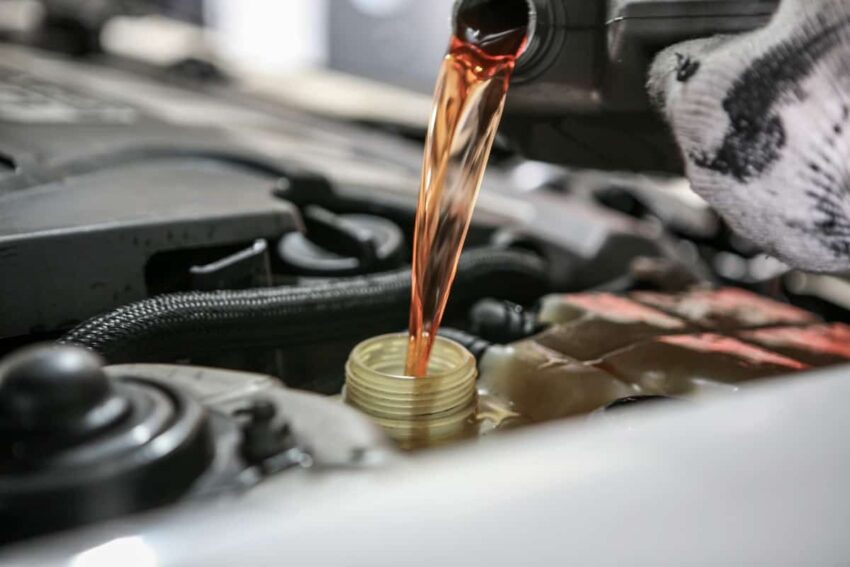Automotive Aftermarket Fuel Additives:
The automotive aftermarket fuel additives industry is a multi-billion dollar global industry that provides products to improve engine performance, fuel economy, emissions control and fuel stability. As cars continue to become more advanced with intensive computer controls and complex emission systems, aftermarket fuel additives play an important role in maintaining optimal engine operation. This article will explore the various types of aftermarket fuel additives available, their functions and benefits.
Types of Fuel Additives
There are several main types of aftermarket fuel additives that are commonly used:
Detergents and Dispersants
One of the main functions of fuel additives is to clean out an engine by removing deposits that accumulate over time such as carbon, varnish and sludge. Detergent and dispersant additives work to loosen these deposits and keep them suspended and prevented from resettling in the engine. This helps promote better fuel distribution and atomization for more complete combustion. Some popular detergent additives include BG MOA and Redline Complete SI-1.
Antioxidants
Antioxidants are added to fuel to increase its stability and prevent breakdown over time. As fuel ages on shelves, in tanks or lines, it begins to oxidize which leads to gum and varnish deposits as well as loss of octane rating. Top tier antioxidants include Chevron Techron Concentrate Plus and Royal Purple Max-Clean. These products protect fuel from oxidative breakdown for maximum efficiency.
Cetane Improvers
Cetane improvers are commonly added to diesel fuel to promote more complete and efficient combustion. Diesel engines rely on ignition caused by heat and pressure from compression rather than a spark plug. A higher cetane number indicates better ignition quality and machine performance. Products like Power Service Diesel Kleen and Lucas Cetane Boost promote more power, faster starts and reduced emissions.
Lubricity and Deposit Control
The refining process can strip natural lubricants from fuel. Over time, this loss of lubricity can damage expensive fuel injection system components. Additionally, deposits still form and can clog or sticking injectors and valves. Lubricity and deposit controlling additives like Lucas Upper Cylinder Protection re-introduce needed lubricity to protect the fuel system and prevent deposits from accumulating.
Benefits of Fuel Additives
When used as directed, aftermarket fuel additives provide several benefits for engines including:
Improved Fuel Economy – By keeping an engine clean and ensuring optimal fuel atomization, additive treated fuel can maximize combustion efficiency. This translates to improved miles per gallon. On average, fuel economy sees a 1-3% boost.
Enhanced Performance – Dirty engines have to work harder to function properly. With deposits removed and conditions optimized, engines can perform at their best levels of power and acceleration. Significant increases in horsepower and torque may be noticed.
Reduced Emissions – As combustion becomes more complete due to reduced carbon buildup, harmful tailpipe pollutants like carbon monoxide and hydrocarbons decrease. Emission system components also last longer when kept clean and lubricated.
Extended Engine Life – By preventing the damaging effects of deposits and keeping critical engine parts running smoothly, fuel additives can extend the lifespan of engines experiencing up to 200,000 miles or more of use when dosed regularly.
Choosing the Right Product
With the wide variety of aftermarket fuel additives on the market today, choosing the right one for a particular vehicle can seem confusing. Experts recommend considering these factors:
– Vehicle Type – Cars/trucks, diesel/gasoline, euro or domestic make a difference in which additive is best.
– Fuel Type – Some work for all gasolines/diesels while others specify TOP TIER, E15 or biodiesel compatibility.
– Symptoms – For cleaning, performance tuning, power/efficiency, etc. Target the additive’s intended function.
– Manufacturer – Reputable brands tested and proven to deliver stated benefits when used regularly.
– Reviews – Check online reviews and forum recommendations from other mechanics and drivers.
– Cost – Consider treatment size and frequency against expected cost savings in fuel/repairs.
With proper research, drivers can find an effective and affordable fuel additive tailored for their vehicle’s needs that delivers real world results. Overall, aftermarket fuel additives provide an easy solution for optimizing an engine when used as part of regular vehicle maintenance.
Fuel additives are an important tool for any driver looking to maximize an engine’s longevity, drivability and efficiency. From cleaning deposits to enhancing lubrication and power, the automotive aftermarket offers proven products for gasoline and diesel vehicles that positively impact factors like performance, economy and emissions when used consistently. Taking the time to choose a reputable additive matched to a vehicle’s make, model year and fuel delivery system can offer peace of mind through smoother running, reduced maintenance costs and more miles per tank.
Note:
1. Source: Coherent Market Insights, Public sources, Desk research
2. We have leveraged AI tools to mine information and compile it

